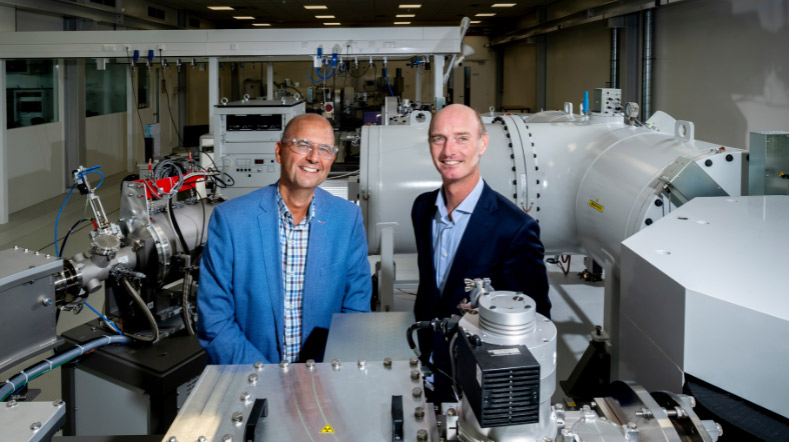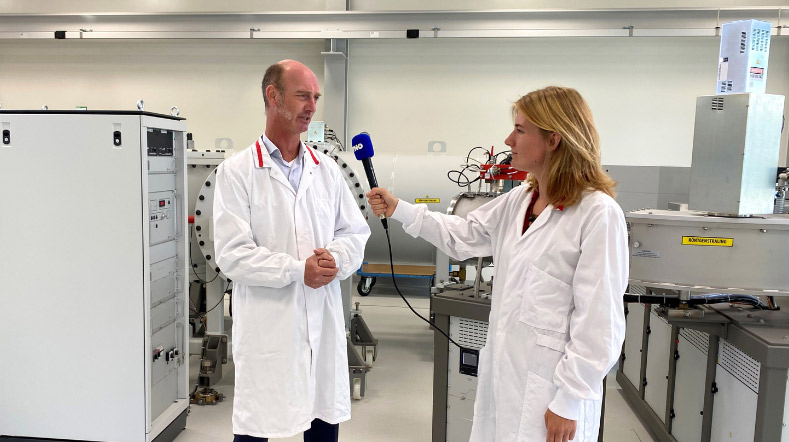
PPP uncovers new insights into MASLD development
Over-consumption of foods rich in fat and sugar can lead to obesity-associated diseases, like MASLD, which affect multiple organs and systems. And yet the majority of intervention studies are typically limited to one target or disease process. TNO designed a unique public/private partnership (PPP) to challenge the status quo.
The result? Unprecedented, broad and interdisciplinary collaboration. Valuable insight into the complex workings of the disease. Answers to multiple research questions. And proof-of-concept interventions that can course-correct MASLD development by targeting different organs at different disease stages.
Understanding MASLD/MASH
For decades, TNO has been studying and testing compounds for the treatment of complications related to metabolic overload, including metabolic dysfunction-associated steatotic liver disease (MASLD). And, although it is known that this disease affects multiple organs and systems, the majority of focus has been on the liver, where the disease manifests. The ProLiver PPP brought together pharmaceutical, nutritional, nutraceutical and diagnostic service-provider partners to shift the focus to organ cross-talk and test proof-of-concept treatments for their ability to reduce disease development at various stages. It targeted different organs, including the gut, as well as adipose tissue and the cardiovascular system. The aim was to gain new insights and knowledge about the development and treatment of MASLD.
What is MASLD?
The disease studied during ProLiver has recently been renamed. Metabolic dysfunction-associated steatotic liver disease (MASLD) was previously known as non-alcoholic fatty liver disease (NAFLD). MASLD encompasses the stage of metabolic dysfunction–associated steatotic liver (MASLD, simple steatosis, which is the build-up of excess fat in the liver cells) to metabolic dysfunction-associated steatohepatitis (MASH, steatosis combined with inflammation) and can even progress to liver fibrosis.
‘Current advice for MASLD patients is limited to lifestyle changes, and that hasn’t changed much in the past 10 years, even as the number of MASLD patients continues to rise worldwide,’ explains Eveline Gart, Scientist at TNO. ‘At the moment, there are no approved medicines to treat it. The therapies investigated so far mainly focused on one specific target or disease process, and this is probably one of the reasons why they’ve proven to have insufficient therapeutic effect in clinical trials.’
‘TNO has a unique mouse model (pdf) that allows the study of multiple-organ dysfunction and is very translational to humans,’ explains Robert Ostendorf, Senior Business Development Manager at TNO. ‘In ProLiver, we further developed that model and employed it to better understand the exact mechanisms of MASLD/MASH development.’
‘We also used different dietary ingredients to modulate disease progression so that we could gain new insights into how nutrition can affect this disease. We answered key research questions, such as the role of the gut and microbiota, the role of adipose tissue inflammation, and more. At the same time, we explored innovative, conceptual interventions with the potential to course-correct disease development using a combination of nutritional and pharmaceutical treatments. Therefore, it was essential to invite both pharmaceutical and nutrition companies to explore these new possibilities with us.’

‘We were able to answer many important research questions and gain deeper insight into MASLD/MASH than a traditional B2B study would have allowed. Each participant was able to extract more value from every euro invested.’
Unique partnerships
‘It’s not common for pharmaceutical companies and nutrition/nutraceutical companies to work together on a study like this,’ Robert says. ‘But we recognised the value that this could bring to all partners. By sharing the costs and risks of a preclinical study, and by combining various research questions into one programme, we were able to extract greater amounts of data for roughly the same per-partner costs of a classical B2B contract study. We demonstrated greater value for money than a traditional study, and all participants gained the insights relevant to their industry. In addition, they gained information about new biomarkers, new analytical methods and a lot of exposure in the form of publications and at conferences. Our partners we extraordinarily positive in their final evaluation of the programme.’
But what about proprietary information and confidential data? From the beginning of the PPP, TNO was able to ensure that each partner – Pfizer, Inc., Grünenthal Pharma GmbH, BASF SE, Aker Biomarine ASA, Biologische Heilmittel Heel GmbH, and Quickzyme Biosciences BV – could determine which information needed to remain confidential, and which could be shared in publications and with other partners. ‘We recognise our responsibility to protect our clients’ proprietary information, and we took every precaution to do so at every stage of the programme,’ Robert says. ‘Our partners trusted us to share the study results, but not the specific targets, exact mechanisms, or other proprietary information so vital for their businesses.’
Unique funding for a unique programme
ProLiver was co-funded by a PPP Allowance made available by Health~Holland. Due to the unique collaboration between the pharma and nutrition industries, funding was made available from two Top Sector divisions: Life Sciences & Health and Agrifood. To Robert and Eveline’s knowledge, this is the first time two Health~Holland Top Sectors have contributed together for such a collaboration.
Result highlights
By combining the organ cross-talk study with different treatment arms, ProLiver was able to deliver much more results than initially hoped for. The study provided the entire industry with deeper insight into the progression of MASLD/MASH, and various innovative therapeutical approaches resulted in surprisingly beneficial disease-modulating effects. The project also enabled TNO to develop new methods and technologies to measure gut permeability, assess collagen architecture and quality, measure de novo lipogenesis, perform comprehensive lipidomics analysis, identify mode of action using gene pathway analysis and develop new tools for refined analysis of inflammation. And, most importantly, the programme enabled TNO to foster true relationships with key industrial partners based on trust and high scientific quality.
By intervening at earlier stages with compounds that targeted multiple organs, the ProLiver team was able to reduce MASLD/MASH development with innovative treatment concepts that find their way in companies’ new R&D approaches. In addition, the treatments also reduced related development of cardiovascular disease (CVD). CVD is still the number one cause of death in MASLD patients. ‘These insights into the disease and use of translational models that reflect multi-organ dysfunction are very important to allow efficient testing of MASLD/MASH treatments,’ Eveline says. Results included a variety of proof-of-concept interventions, and the ProLiver results have been included as evidence in a patent application for one novel intervention.

‘We believe a combination of interventions targeting multiple disease processes and multiple metabolic organs offers the best chance at attenuating MASLD/MASH development.’
Deeper understanding
What’s more, the insights uncovered during ProLiver are now informing all of TNO’s work in the domain. The preclinical, translational efficacy models used during ProLiver have been strengthened by the deeper insights gathered during the study.
‘We’ve learnt a lot more about the disease, how it progresses and impacts the body. We’ve learnt more about the timing and process of the disease. And we understand more about how the interaction of different organs and systems leads to damage and dysfunction in the liver,’ Eveline explains. All of this knowledge will ensure that future B2B studies will be even more accurately designed for the target or process of interest than before.
Next steps
Both Robert and Eveline aim to make programmes like ProLiver far more common. ‘The value of cross-industry collaboration and addressing multiple research questions simultaneously has been clearly proven,’ Robert says. ‘Not only are we ready to take these MASLD/MASH insights to new levels, but we encourage companies exploring treatments for other cardiometabolic diseases to get in touch. We are confident we can extract added value for them, too.’
Eveline agrees: ‘We know that collaborations like these might not be very common for the food and pharma industries, but our ProLiver partners are enthusiastic about the results of the collaboration. We can deliver more data and insights without increasing costs or risks, and we can help drive the entire ecosystem forward by gaining much deeper insight into disease development and progression.’
Want to learn more about taking part in a revolutionary PPP with valuable results? Contact TNO today to find out more.
Download the complete thesis
In addition to providing evidence for a compound patent application, ProLiver research has been published in eight peer-reviewed publications and in nine conference presentations. In addition, ProLiver was the subject of Eveline’s PhD thesis. Download the thesis for comprehensive information about ProLiver and its results.
Get inspired
Preclinical ADME


TNO launches Peregrion to boost market impact of its technology that accelerates medicine development


Translational preclinical efficacy models


Time setters: reduce long waits for new medication with AMS


Ex vivo organ perfusion provides accurate drug development data






